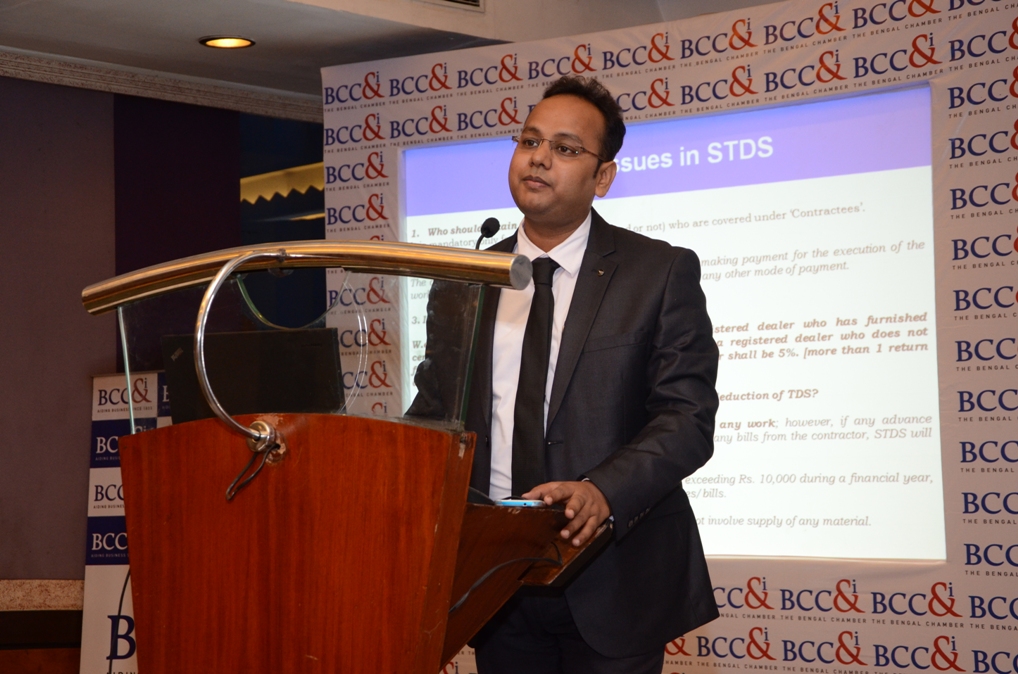Provisions under section 194R of Income Tax Act, 1961
The new TDS u/s 194R on Business Promotion Expenses shall be applicable as follows –
In the recent budget 2022 in Income Tax, it is proposed to impose a TDS on business promotion expenditure expended by an organisation. It has far reaching implications even in the hands of the recipients of the business promotion Expenditure. Here we have discussed not only the TDS u/s 194R but also its impact on the resident and also the GST impact on such business promotion expenditure.
1. The TDS is applicable on Any Resident who is providing any benefit/perquisite to another Resident
2. The Benefit/Perquisite has to be in kind and arising from Business & Profession (BP),
3. TDS should be deducted at 10% on the value or aggregate of value of such benefit or perquisite:
4. TDS should be deducted before providing such benefit or perquisite
5. TDS applicable even when cash is not sufficient for payment of the same
6. No TDS incase of benefit/perk per person is not more than 20,000 in a FY
7. No TDS when deductor is an Individual/HUF in business/professional with turnover/receipts in business/professional below Rs.1Cr / Rs.50 Lakhs
8. This amendment will take effect from 1st July, 2022.
Issues & Challenges
1. The Recipient has to offer the Value of such Benefit/Perquisite for taxation in its ITR under PGBP u/s Section 28(iv) which provides for charging as PGBP the value of any benefit or perquisite, whether convertible into money or not, arising from business or the exercise of a profession;
2. Incase the entire benefit is for kind, then the amount of TDS needs to be Maybe by a Debit note..
3. TDS needs to be deposited BEFORE providing the benefit/perquisite
4. Benefit/Perquisite has to be provided in Kind – Hon’ble Apex Court in the case of Mahindra & Mahindra Ltd has held that in order to invoke the provisions of section 28(iv) of the Income Tax Act, the benefit which is received has to be in some other form rather than in the shape of money.
5. What would be the Valuation for the Deductor is another It would involve disputes incase of both the total value disclosed as well as individual deductee
6. No TDS incase provider/recipient of the benefit/perquisite is a non-resident and/or recipient is a Non Resident
7. It would make the TDS returns bulkier
8. There must exist nexus between the business of the recipient resident & benefit provided to B2C benefits will not come under the purview of Section 194R/ 28(iv).
Issues & Challenges
9. There must be a circumvention of income by taking or receiving income in other forms to be taxable u/s 28(iv) For Sale of goods at discounted price for a car in return when there is no other reason for such party for giving car in gift to the seller. The value of the car can be liable to TDS u/s 194R
10. An insurance company decided to provide TV of Rs. 50000/- to an agent who clocks insurance premium Rs. 10 Lakhs in one quarter. Now, this will be subject to the TDS provision and the agent has to disclose in his ITR as PGBP
11. An Electronics company decided to offer the tour to Dubai for the dealer who makes the purchases Rs. 1 Crore in one year. Now, this will be subject to the TDS provision and TDS will be done on the basis of market value of the Bangkok The same has to be disclosed by the purchaser under PGBP
12. In David Dhawan [2005] 2 SOT 311 (Mumbai)/[2005] 92 TTJ 161 (Mumbai), it was held that when the person is travelling for performing the work and his family joins him at that place of temporary relocation, it cannot be regarded as a
13. provision of free mobile cell phones to distributors subject to sale of “N” number of cell phones during the particular (i.e. upon meeting sales target)
14. Tour packages given to health professionals by pharma companies for promoting their medicines. Incase this is not as per the Law for the doctors to receive, then even the Company will not be allowed deduction under PGBP for the same.

GST – Critical Provisions for allowance of ITC/Non-Payment of Tax
1. They are not outward supply at all as they are not transferred/disposed off for a consideration.
2. They are not business assets. They are not purchased for generating future economic cash
3. They are not ‘gifts’ as there is a business purpose for the expenditure. The expenditure is incurred to promote/generate sales. They are not voluntary but incurred due to market requirement to generate demand.
4. They are at best moveable property for distribution and increasing
5. They are business expenditure like any other expenditure which are for furtherance of business.





